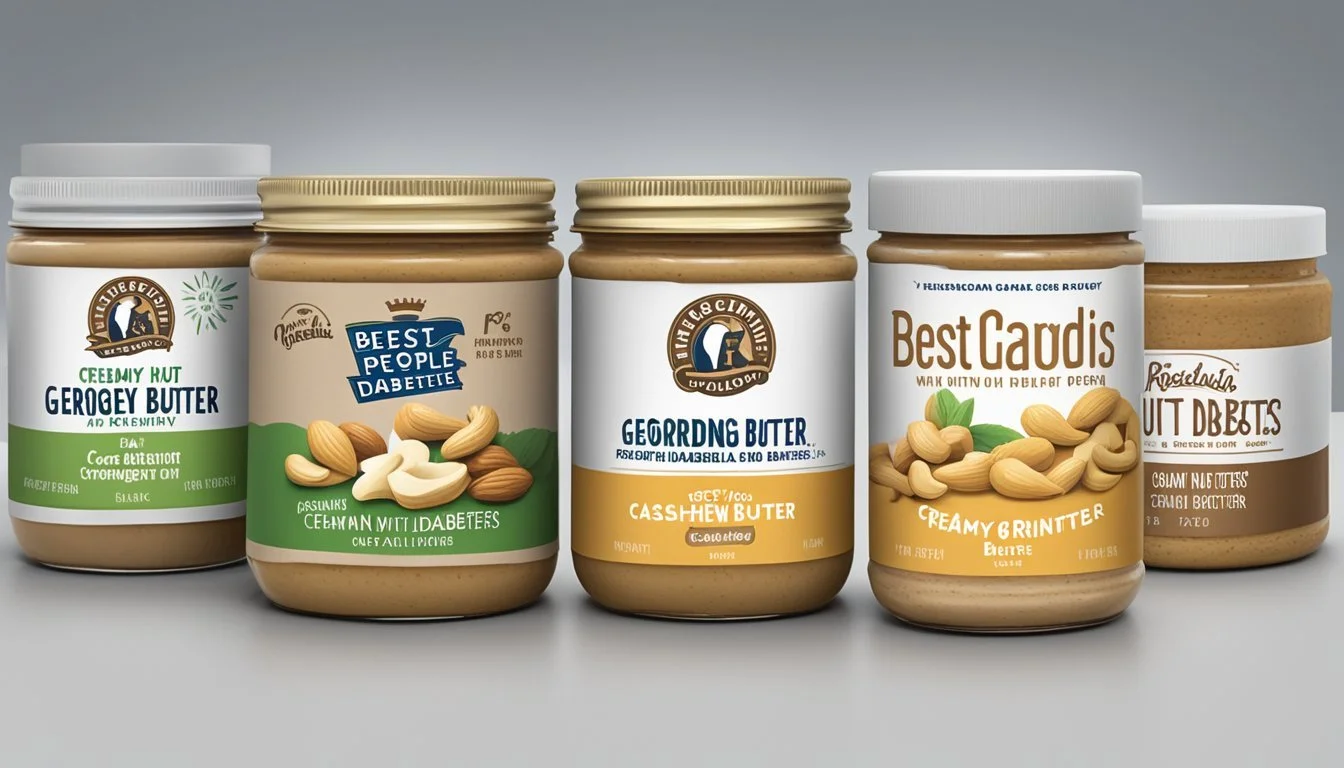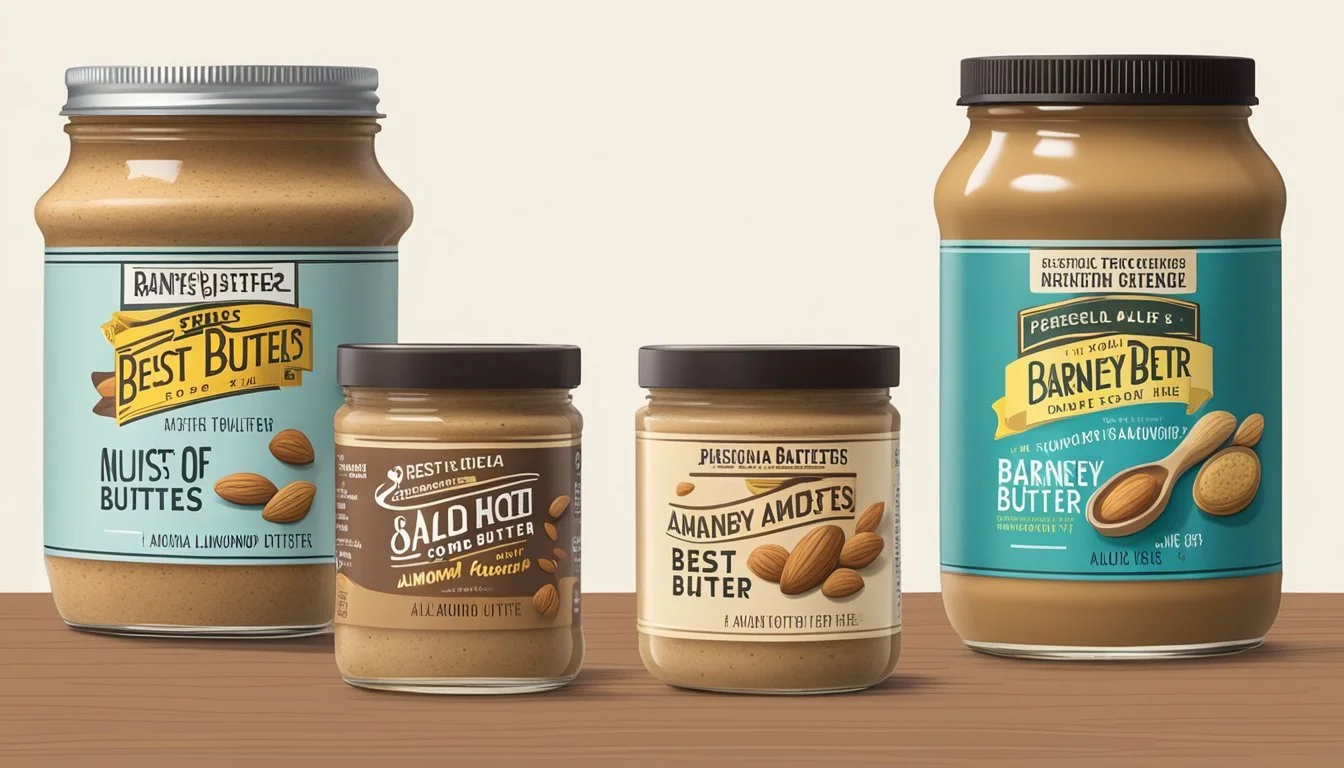3 Best Nut Butters for People with Diabetes
Top Picks for Balanced Blood Sugar
Choosing the right nut butter can be a smart dietary decision for individuals living with diabetes. With numerous options available, it's important to identify products that not only satisfy the taste buds but also support stable blood sugar levels and meet nutritional needs.
This article explores the top three nut butters that are particularly beneficial for people with diabetes, offering insights into their nutritional profiles and how they can fit into a diabetic-friendly diet. By understanding these options, readers can make informed choices that contribute to better overall health and diabetes management.
1) Georgia Grinders Creamy Cashew Butter
Georgia Grinders Creamy Cashew Butter stands out as a top choice for people with diabetes. This nut butter contains only two ingredients, ensuring minimal additives and no added sugars, which are crucial for maintaining stable blood sugar levels.
With a smooth, velvety texture and rich flavor, it is versatile for both savory and sweet dishes. Those adopting keto, Whole30, or vegan diets will find this product fits their nutritional requirements.
The nut butter is gluten-free and non-GMO, which makes it suitable for those with specific dietary restrictions. At $13.49 for a 12oz jar, it offers quality and affordability.
Georgia Grinders' commitment to producing fresh products enhances its appeal. The cashew butter is ground in-house regularly, providing a shelf life of up to one year. This ensures consumers receive a product that is not only delicious but also fresh and health-conscious.
2) Barney Butter Smooth Almond Butter
Barney Butter Smooth Almond Butter stands out for its simplicity and nutritional benefits. This almond butter is crafted from high-quality California almonds, providing a rich source of monounsaturated fats which are heart-healthy.
It's ideal for people with diabetes due to its low glycemic index. The absence of added sugars helps maintain stable blood sugar levels. Each serving also delivers a decent amount of fiber and protein.
Moreover, Barney Butter prides itself on using non-GMO ingredients. The smooth texture and delectable taste make it a versatile addition to various meals or as a snack. Its pure ingredient list containing just almonds and a touch of palm fruit oil for consistency makes it a wholesome choice.
3) Spread The Love Naked Organic Peanut Butter
Spread The Love Naked Organic Peanut Butter is a strong contender for individuals with diabetes.
This nut butter is made from just one ingredient—organically grown peanuts. This simplicity ensures it has no added sugar or unnecessary additives, making it a healthier choice.
Its naturally sweet and oily blend of peanuts provides a delicious taste while maintaining nutritional integrity.
Stable blood sugar levels can be supported by choosing products with low glycemic indexes. Spread The Love Naked Organic Peanut Butter fits this criterion by excluding sweeteners and hydrogenated oils.
Additionally, its high protein content can help with satiety, making it easier to manage one’s diet.
For those seeking a nut butter that aligns with diabetic-friendly dietary requirements, Spread The Love Naked Organic Peanut Butter is an excellent option.
Nutritional Benefits of Nut Butters for Diabetics
Nut butters offer numerous nutritional benefits for individuals managing diabetes. They contain healthy fats, protein, and have a low glycemic impact, which can help stabilize blood sugar levels.
Healthy Fats and Protein
Nut butters are rich in healthy fats, such as monounsaturated and polyunsaturated fats, which help in maintaining heart health. These fats can aid in reducing bad cholesterol levels and are important for overall cardiovascular health.
Protein content in nut butters is also significant. For example, peanut butter provides around 8 grams of protein per two tablespoon serving. Protein is essential for muscle repair and growth, and can also help in feeling fuller for longer, aiding in weight management, which is crucial for individuals with diabetes.
Glycemic Impact
The glycemic impact of nut butters is relatively low, making them beneficial for blood sugar control. Foods with a low glycemic index (GI) are known to cause a slower, more gradual rise in blood sugar levels. Nut butters like almond and peanut butter typically have a low GI.
For instance, almond butter contains around 2 grams of net carbs per serving. This low carbohydrate content helps in minimizing blood sugar spikes after consumption. Unsweetened nut butters are a better choice as they do not contain added sugars, further supporting stable glucose levels.
Nut butters also provide dietary fiber, which slows glucose absorption into the bloodstream, aiding in better glycemic control. Including a variety of nut butters in the diet can offer diverse flavors and nutrition profiles tailored to individual health needs.
Incorporating Nut Butters into a Diabetic Diet
Integrating nut butters into a diabetic diet requires mindful consideration of portion sizes and optimal timing to enhance their benefits while minimizing potential risks.
Portion Control
Maintaining portion control is crucial when incorporating nut butters into a diabetic diet. A standard serving size is typically two tablespoons, equating to around 190 calories and 7 grams of protein. Measuring servings ensures that calorie and fat intake remains within healthy limits.
Although nut butters contain healthy fats, overconsumption can lead to weight gain, complicating diabetes management. Opt for unsweetened varieties to avoid added sugars, which can spike blood glucose levels. It's helpful to read labels and choose products with minimal ingredients: just nuts and a bit of salt, if desired.
Best Times to Consume
Timing the consumption of nut butters can have significant impacts on blood sugar management. Nut butters can be a satisfying addition to breakfast, providing steady energy release. They pair well with whole-grain toast or oatmeal, offering a balanced start to the day. A spoonful can also be added to smoothies for protein and healthy fats.
As an afternoon or pre-workout snack, nut butters can prevent blood sugar dips, reducing the risk of hypoglycemia. Consuming them with fruits or vegetables, like apple slices or celery sticks, makes for a balanced snack. Evening snacks should be moderated due to their calorie content, but a small portion can prevent overnight blood sugar drops.





